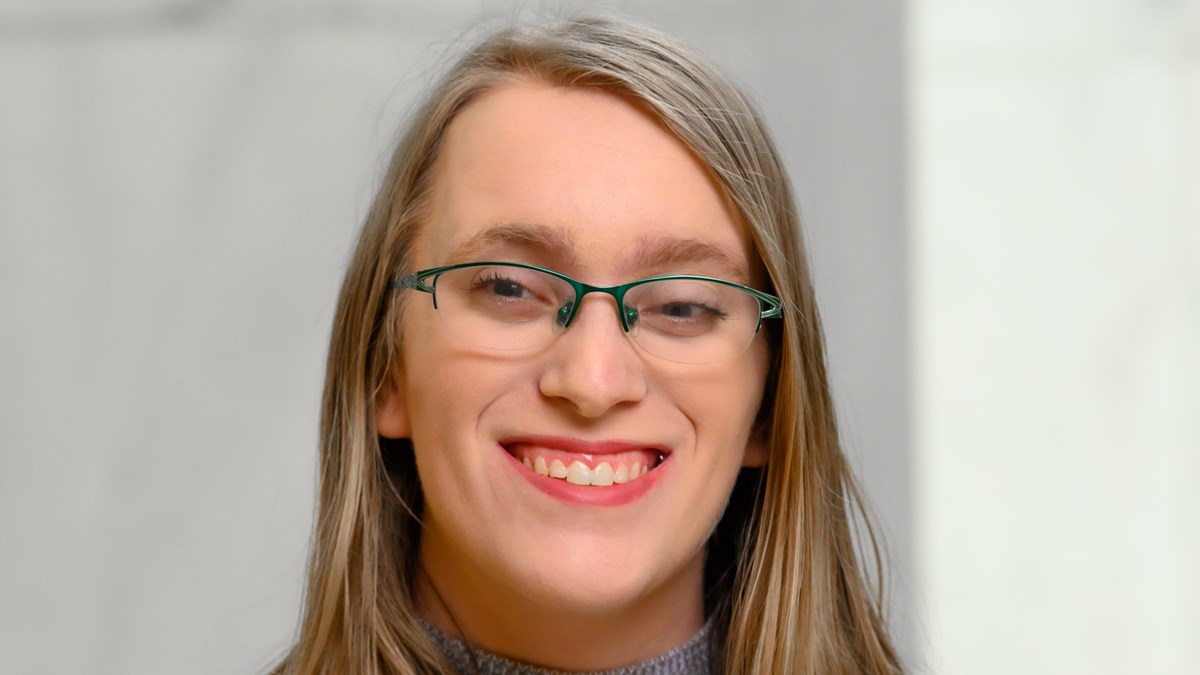Shannon Eshelman

“Growing up in West Virginia, I have grown to understand the value of a college education, as well as the value of obtaining one in-state. It became a personal goal of mine to continue my education here in the state I’ve called home for so many years.”
Where did you earn your undergraduate degree and what did you major in?
I received a dual degree in biology and chemistry from the University of Charleston in Charleston, W.Va. My undergraduate research focused on the fluorescence spectroscopy of uranyl (VI) with primary aromatic amines.
What made you want to get your Ph.D. here at WVU?
Growing up in West Virginia, I have grown to understand the value of a college education, as well as the value of obtaining one in-state. It became a personal goal of mine to continue my education here in the state I’ve called home for so many years. I decided WVU would be the best place to achieve that goal.
What made you interested in the Biochemistry program?
I have always held a personal interest in biochemistry. Upon coming to WVU, I learned that there is a growing ophthalmic sciences department within the biochemistry program. When I started at WVU, I rotated in two visual sciences and a neuroscience lab before joining Dr. Michael Robichaux's lab.
In Dr. Robichaux’s lab, we are looking at visual processes at the mechanistic level to understand the pathways in rod photoreceptors that help to maintain rod-neuron homeostasis and vision. I joined Dr. Robichaux’s lab, not only because it was personally a good fit with the lab members, but because he’s looking at the visual processes mechanistically using super-resolution microscopy, which has unlocked an interest in microscopy. The technology for vision research is quite impressive.
What sparked your interest in ophthalmology and visual sciences research?
I was diagnosed with a rare eye disease - retinopathy of prematurity, when I was born, which resulted in vision loss in one of my eyes and no depth perception. My personal connection allows me to understand the importance of research in the ophthalmologic sciences and the level of collaboration we have in the department fosters great opportunities to learn more about work being done in the field.
There also really is a strong sense of community and togetherness within the Department of Biochemistry and Molecular Medicine. Each lab is willing to help one another by offering numerous opportunities for collaboration. This, in combination with personal interest in ophthalmology and visual sciences, made choosing this field quite easy. My goal is to further understand visual processes on a deeper level, and eventually contribute to the treatment of visual disorders.
So far, what is your favorite thing about the Biochemistry and Molecular Medicine Program?
One of my favorite things about this program are the biochemistry research forums and seminars. They provide opportunities to learn more about what others are doing in their labs and research areas that I may not get exposed to being in an ophthalmic sciences lab. I always enjoy getting to learn about what other students are researching here.
Share something unique or interesting about you that others may not know.
One small but personal reason I joined vision research is because I was born legally blind in my left eye due to a rare eye disease. Because of this visual impairment, I had to change careers and forgo being an astronaut. However, being a research scientist is just as awesome! My hobbies include baking, traveling, anything dog or space-related and sharing music recommendations.
What are your goals after graduating?
After graduating from WVU, and depending on the job market, I hope to settle down, likely somewhere in the Midwest closer to family, and focus on my career.
What are your career goals? What are the next steps for you professionally?
I am unsure what my next step is, though I feel led towards a career in industry or maybe a staff scientist position in an academic research lab.
What would you tell prospective students about WVU and the School of Medicine?
I entered graduate school thinking that all of the faculty would be ultra-intimidating. This was not the case at all. Everyone I have interacted with through WVU has been incredibly kind and I can confidently say I am receiving a great education here at WVU.
Do you have any advice for anyone thinking about a Ph.D.?
Pursuing a Ph.D. will be incredibly challenging, however in the first year - you will grow so much individually and as a researcher. Never be afraid to ask questions, even if you think it’s the dumbest question in the world. I guarantee the person you are talking to will be incredibly excited to not only talk about their topic, but that you are also asking questions. Scientists love to share their knowledge and talk about their topic.